Women's Super League: Will 'big three' brands inevitably dominate?
- Published
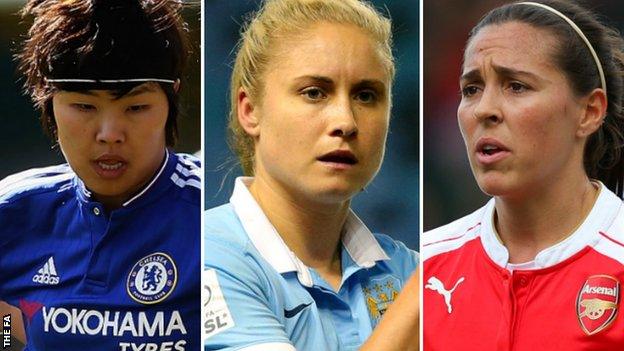
The squads of Chelsea, Manchester City and Arsenal are packed with international stars
While Leicester City and Tottenham have challenged the Premier League's status quo this season, the opposite has been happening in the Women's Super League.
Chelsea, Manchester City and Arsenal made up the top three in WSL 1 in 2015 and, between them, have won every domestic cup competition since 2013.
All three have reached the Women's FA Cup semi-finals on Sunday and only 'Crazy Gang' member Carlton Fairweather's Sunderland can stop their dominant run continuing.
It was not so long ago that Fulham, Charlton and Croydon were among those regularly competing for English women's football's biggest prizes.
But as the game grows, is an era of dominance from the 'big three' inevitable?
Global brands boost marketing
As the WSL has grown in popularity, a distinct disparity has developed in the number of fans each club is reaching on social media.
Take Facebook, for example, where Arsenal Ladies' official page boasts a staggering 4,667,028 'likes' compared to fellow top-flight side Reading's 2,480.*
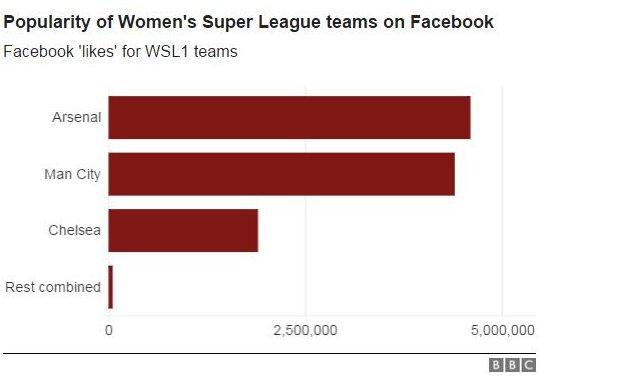
"The brands of the likes of Arsenal, Chelsea and Man City serve a point of engagement for fans of football - not just female - but also male," Simon Chadwick, professor of sports enterprise at the University of Salford, told BBC Sport.
"In this emergent phase of women's football, as it gains in popularity, branding remains a fact of life and it's important you don't disappear into the background.
"Those bigger clubs can utilise brand assets they already have, which boosts television coverage, attracting sponsors, and selling tickets."
Is it translating to results on the pitch?
While Arsenal, who have won the Women's FA Cup a record 13 times, have enjoyed success for many decades, Chelsea and City's has come only in recent years.
Even after the inception of the WSL in 2011, Birmingham City were the Gunners' closest rivals for silverware.
But 2013 remains the last time Arsenal, Chelsea or Man City lost to anyone other than each other in the Women's FA Cup.
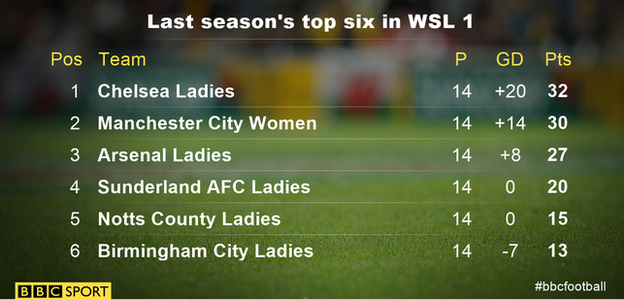
The league has a salary cap in a bid to encourage sustained growth, but clubs have varying levels of facilities and access to expertise.
"In a game of 90 minutes you can't guarantee success, even if you have better resources," Arsenal Ladies boss Pedro Martinez Losa told BBC Sport. "But better resources can at least guarantee better facilities and more staff.
"In my experience, professional players want two things - to improve and to win.
"We offer that professional environment, with the right rehabilitation."
Recruiting international talent
That offer is evidently attracting talent, with Arsenal this winter persuading England's most-capped player, Fara Williams, to join them from Liverpool, along with BBC Women's Footballer of the Year, Nigeria winger Asisat Oshoala.
Champions Chelsea's signings included Birmingham's captain and one of England's most skilled players, Karen Carney, while Manchester City also demonstrated their ambition with additions including Sweden star Kosovare Asllani from Paris St-Germain and Scotland striker Jane Ross.
Other WSL clubs have been busy in the transfer market too - Liverpool captured England left-back Alex Greenwood - yet the majority of the international stars in the league play for the big three.
"Global names like Chelsea are immensely powerful," added Chadwick. "The power of those global brands is one factor in those clubs being able to sign high-quality, oversees playing talent."
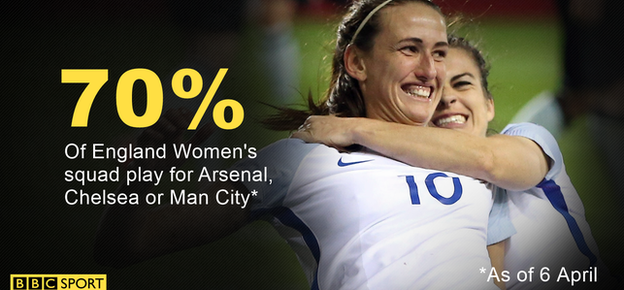
Bringing in the crowds
The average attendance in WSL 1 last season was 1,076, a 48% rise compared to 2014.
But that increase was largely helped by those turning up at City's Academy Stadium, where the average crowd was 1,500, while 2,710 were at Staines Town FC to see Chelsea beat Sunderland to clinch the league title in October.
Such numbers were more difficult for relegated Bristol City WFC - then known as Bristol Academy - and chairman Simon Arnold said in September that his side had faced teams with budgets on a "different planet".
Top WSL clubs' budgets shock Arnold
The traditional alternatives
It is names traditionally associated with women's football in England, like 2013 runners-up Bristol, who some fans are sad to see no longer at the very top.
But another of the country's proudest women's football brands does still play top-flight football.
Doncaster Rovers Belles hold a unique place in history, having won the Women's FA Cup six times - six times more than Manchester City. But how do they survive in this new era of women's football powerhouses?
"We have a strong theme promoting women in the game, offering a mentoring scheme for female coaches and managers," club chair Faye Lygo told BBC Sport.
"The Belles brand is really strong. Even people who don't know women's football, when they think of a team, they think of the Belles."
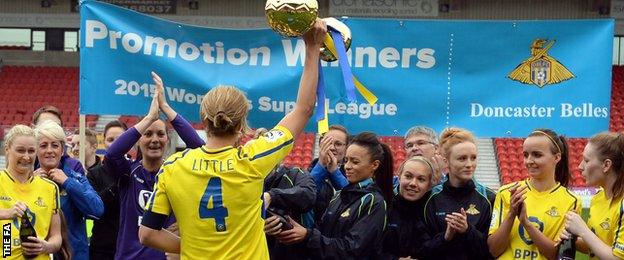
Doncaster Rovers Belles won promotion back to the top flight last season
Lygo has seen the club fight back from a relegation that many deemed harsh. Can they rediscover their glory days?
"Those teams that have a large number of senior internationals have the ability to reach more people, so maybe it is their time to shine and, naturally, it will be a struggle for others to keep up," she said.
"But you're not out of the running just because you're not one of those big teams. There are more skilled players in the league than can fit in to just a few teams; there are skilled players all through the league.
"Each season seems to be a complete refresh, in that you can't necessarily judge by what has gone on before."
Future challenges
While domestic fan bases may be growing, across the Atlantic average attendances in the National Women's Soccer League last year were far higher - just shy of 5,000.
"In countries like Japan and Germany, there has been a much greater level of engagement in women's football," said Chadwick.
"But to what extent do existing brands constrain or hinder the future development of women's football?
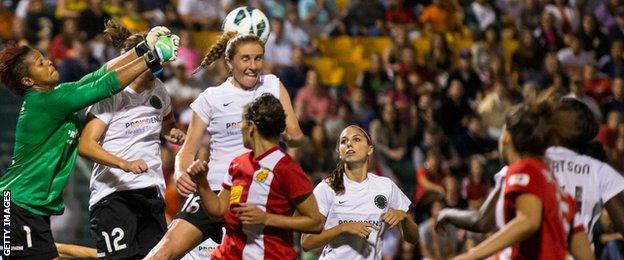
American clubs such as Portland Thorns attract large crowds, playing in 20,000-seater stadiums
"At some point along the line, somewhere in the future, it might become appropriate for women's clubs to develop their own brand identities.
"Will Arsenal Ladies always live in the shadow or Arsenal men?
"At present, Manchester City draws in more people than, say, Wythenshawe Bears would - but what about in the future?"
In the more immediate future, English clubs are yet to sustain success in European competitions, as French and German sides continue to dominate the Women's Champions League.
So can English women's clubs ever be revered around the world for their success? "It's a question of time," promises Losa.
*Figures correct as of 14 April 2016.
- Published5 October 2015
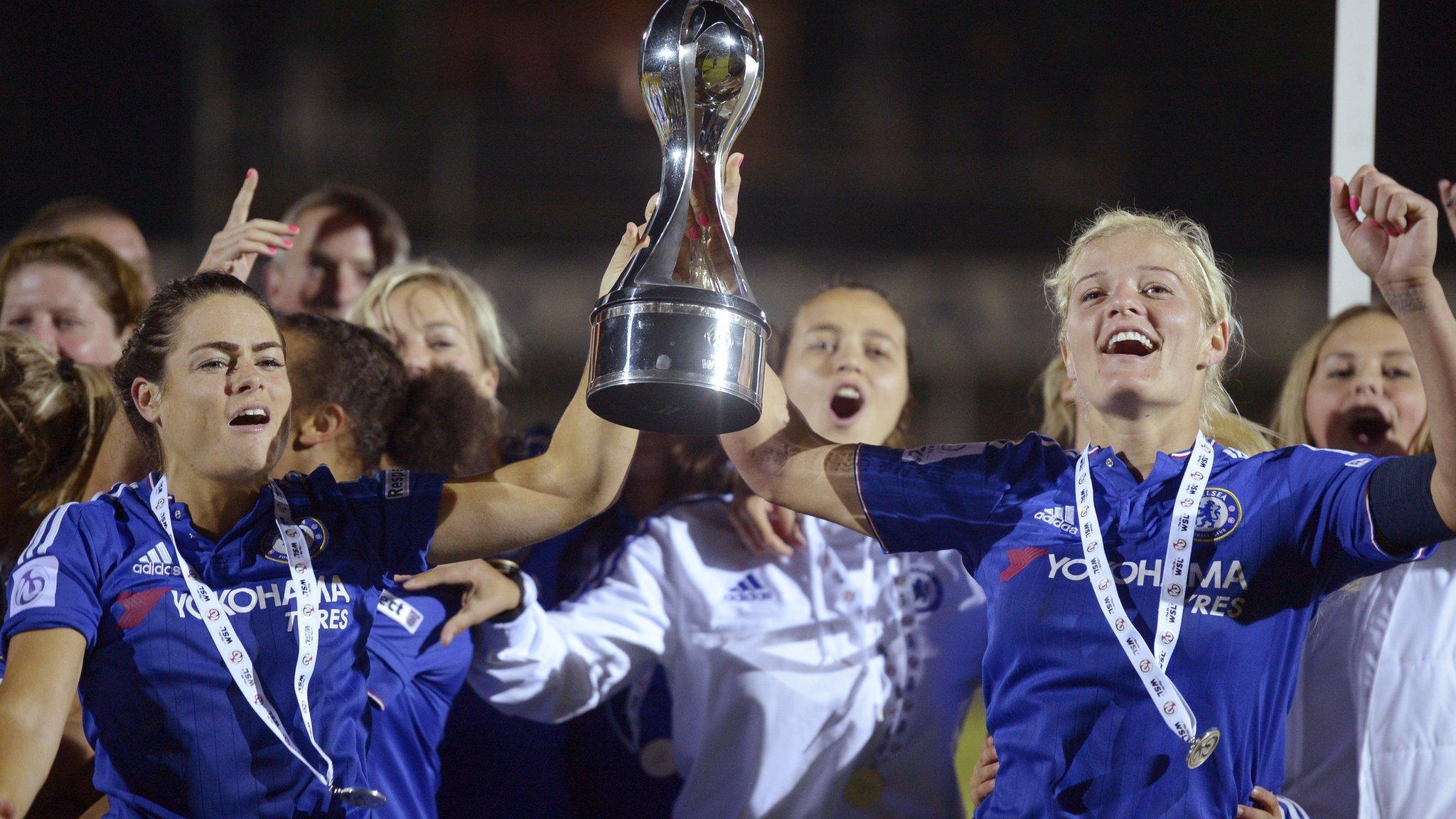
- Published1 June 2014
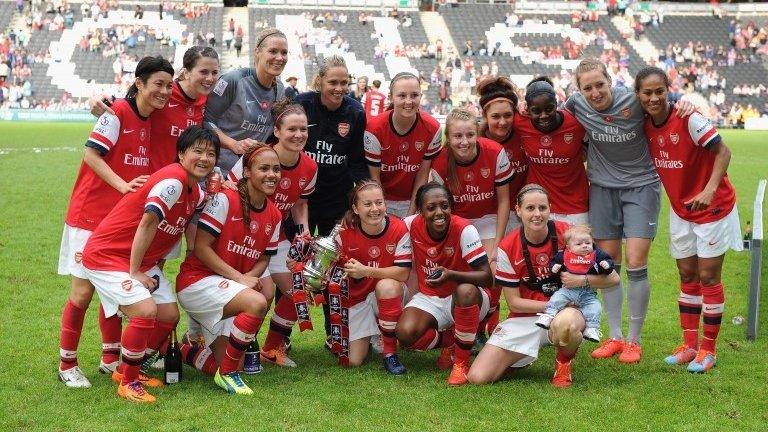
- Published16 October 2014
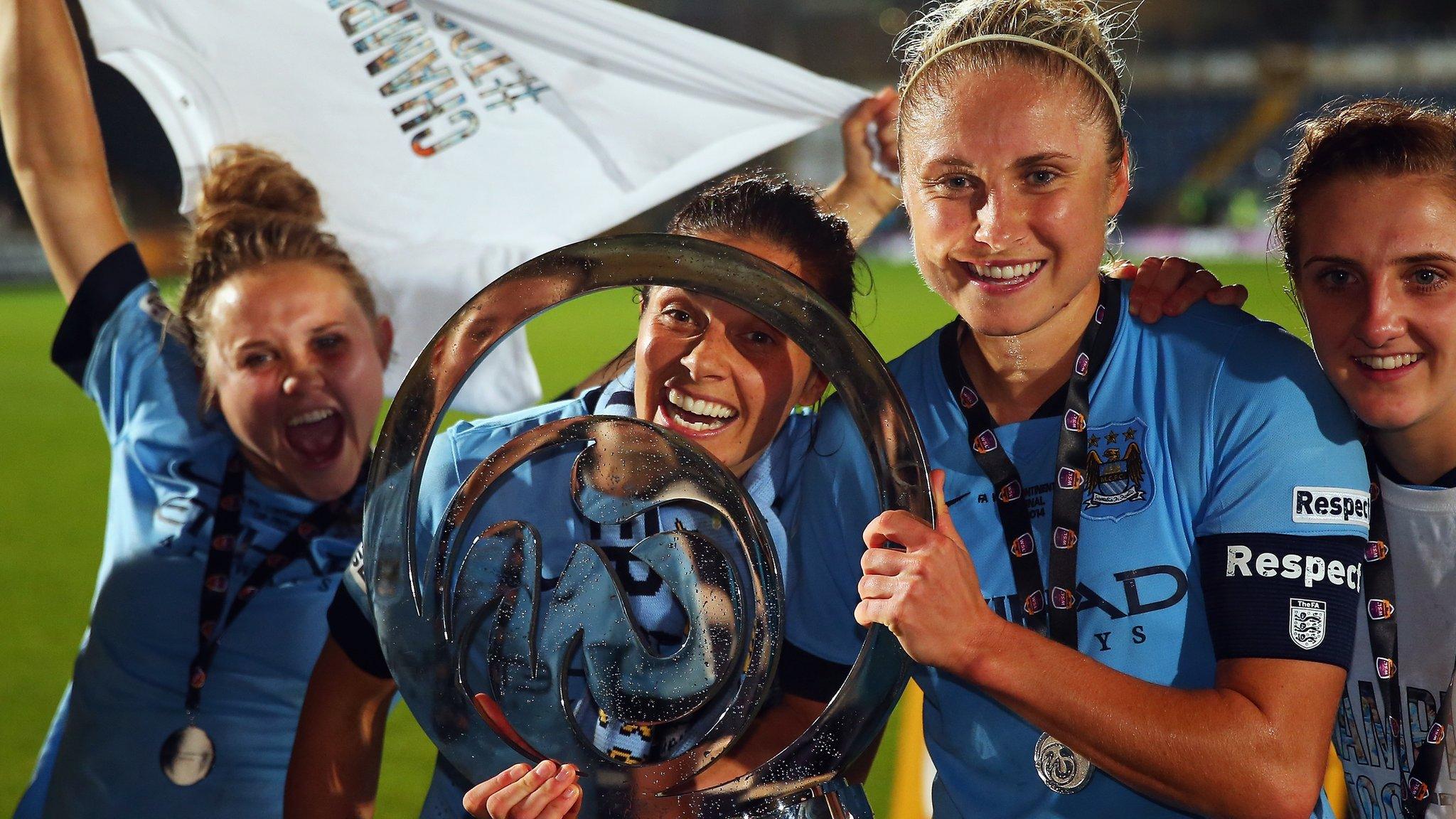
- Published20 June 2016

- Published7 June 2019
